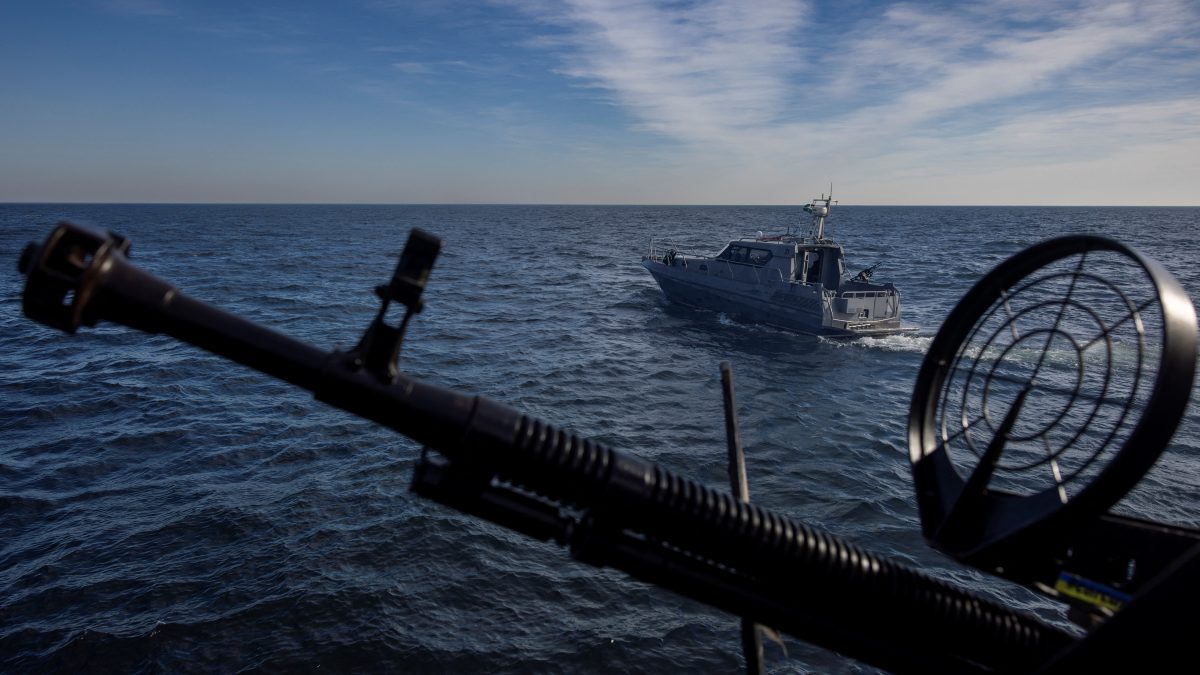US and Russian officials concluded a day of diplomatic talks in Saudi Arabia on Monday (March 24), aimed at brokering a limited maritime ceasefire in the Black Sea between Ukraine and Russia. Washington hopes the move will lay the groundwork for broader peace negotiations.
A senior White House official said progress was being made and hinted at a “positive announcement” in the near future.
The discussions reportedly focused on securing a truce in the Black Sea to ensure the safe passage of commercial shipping.
Reuters cited a Russia source as saying that the two sides had agreed on a draft joint statement, which had been sent to both capitals for approval, though Kremlin spokesperson Dmitry Peskov downplayed expectations.
“This is primarily about the safety of navigation,” Peskov said.
The maritime front has been quieter in recent months, with Ukraine regaining some control of its shipping lanes after pushing back the Russian navy in 2023. Nonetheless, the White House sees the issue as a possible starting point for trust-building between the two sides.
While Ukrainian representatives did not formally take part in the talks, they were present on the sidelines of the meetings, which marked the latest attempt by the Trump administration to position itself as a broker for peace.
Impact Shorts
More ShortsWhite House national security adviser Mike Waltz confirmed the presence of all three delegations in the same Saudi facility and said discussions extended beyond maritime issues to the potential freezing of military lines and possible peacekeeping arrangements.
Diplomacy amid drone strikes
Even as the negotiations unfolded in Riyadh, Russian missiles struck the northeastern Ukrainian city of Sumy, injuring at least 88 people and damaging a school and a hospital, in a grim reminder of the conflict’s continuing toll on civilians.
Despite the diplomatic overtures, Monday’s missile strike in Sumy drew sharp condemnation from Kyiv. Regional governor Volodymyr Artiukh said several apartment blocks were hit and credited the limited number of casualties to children sheltering during the attack.
“Moscow speaks of peace while carrying out brutal strikes on densely populated residential areas in major Ukrainian cities,” said Ukraine’s foreign minister, Andrii Sybiha. “Instead of making hollow statements about peace, Russia must stop bombing our cities and end its war on civilians.”
The Trump effect
The Trump administration’s latest ceasefire proposal, a full 30-day pause in fighting, was rejected by Russia, which has so far only agreed to refrain from targeting Ukraine’s energy infrastructure.
President Donald Trump, who returned to office in January, has taken a markedly different approach from his predecessor Joe Biden, scaling back military aid to Ukraine and signalling greater openness to Moscow’s positions.
He spoke separately with Presidents Volodymyr Zelenskyy and Vladimir Putin last week, saying issues such as territorial lines, demarcation zones, and energy infrastructure ownership were now “on the table”.
Allies remain sceptical
While the US is pushing for incremental steps, many observers fear that the prospect of real peace remains elusive, with Russia showing little sign of backing down from its maximalist aims.
European officials, for one, remain sceptical that Moscow is prepared to make serious concessions. Putin has continued to insist that Ukraine renounce its ambitions to join Nato and withdraw from all four regions Russia has illegally annexed since 2022 – conditions Kyiv has repeatedly rejected.
With inputs from agencies


)

)
)
)
)
)
)
)
)



